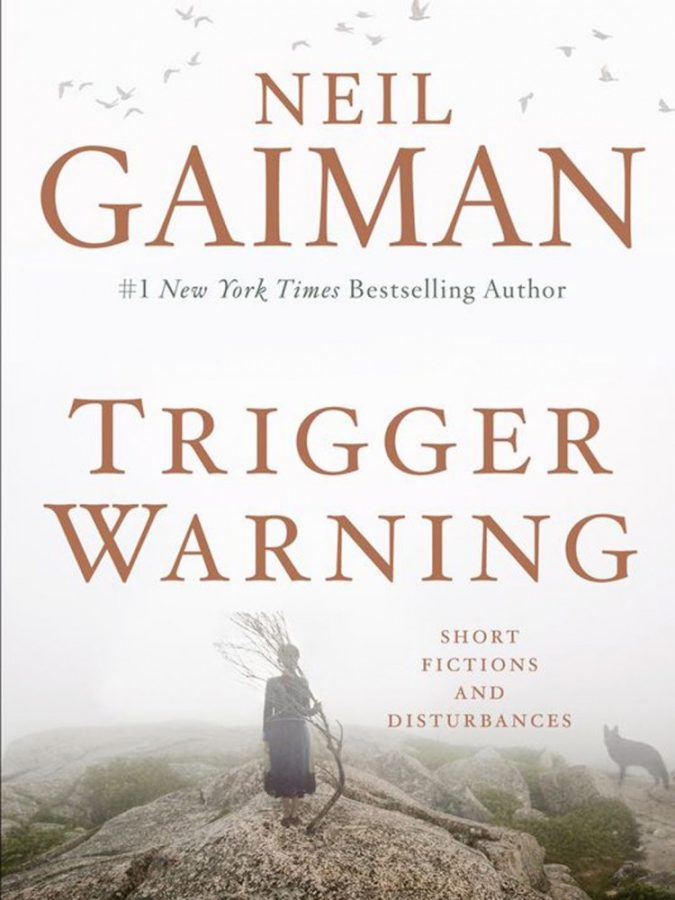“And what we learn about ourselves in those moments, where the trigger has been squeezed, is this: The past is not dead. There are things that wait for us, patiently, in the dark corridors of our lives.”
Neil Gaiman begins his latest collection of short stories, “Trigger Warning,” with this sinister statement, establishing the book with Gaiman’s characteristic blend of intriguing darkness. In a way, this introduction is reminiscent of an epistolary style with its brief summary of how these specific stories came to be. It is an intriguing premise, one which Gaiman foreshadows with his own “trigger warning” before delving into entries exploring the idea of trigger warnings and what that phrase means.
In this collection of short stories — some already printed elsewhere — readers can find a variety of topics and genres. This includes poetry, tributes to writers such as Jack Vance and Ray Bradbury and Gaiman’s own fiction in the universes of Sherlock Holmes and Doctor Who. He also has original works and returns to old characters from previous works, like “American Gods.” With so much squeezed in between less than 400 pages, it’s a wonder it fit at all.
Because some of these stories were from an earlier point in Gaiman’s life, readers can get a glimpse of his progression over his writing career. Although the poetry is an interesting addition to the work, his poems leave a bit to be desired.
Another notable piece is “The Truth Is a Cave in the Black Mountain,” in which the line “and had many more miles to go” rang of Robert Frost’s “Stopping by Woods on a Snowy Evening.” It tells of humanity, indifference and an underlying quest for revenge.
When asked on Twitter what was Gaiman’s inspiration for pulling together the story collection, the author replied, “Mostly the terror that they would publish the book and ‘Black Dog’ wouldn’t be done.”
Luckily, “Black Dog” was finished in time and rounds out the book. It stars Shadow, the protagonist of “American Gods,” who’s now in Britain, and features references to both “American Gods” and Sir Arthur Conan Doyle’s “The Hound of the Baskervilles.” The references to Gaiman’s earlier work tie the book back to his canon — “Trigger Warning” is not some odd menagerie of short stories that’s secondary to his novels. Rather, it is very much an important part of Gaiman’s literary collection.
But as enjoyable as the stories were, the trigger warning gives readers a foreknowledge of each story, lingering in the backs of their minds. With good fiction but iffy poetry, the trigger warning may have been a poor choice, but remains a fascinating premise and a worthwhile addition to an already-impressive catalogue of books.
_______________
Follow Ivana Goldtooth on Twitter.









